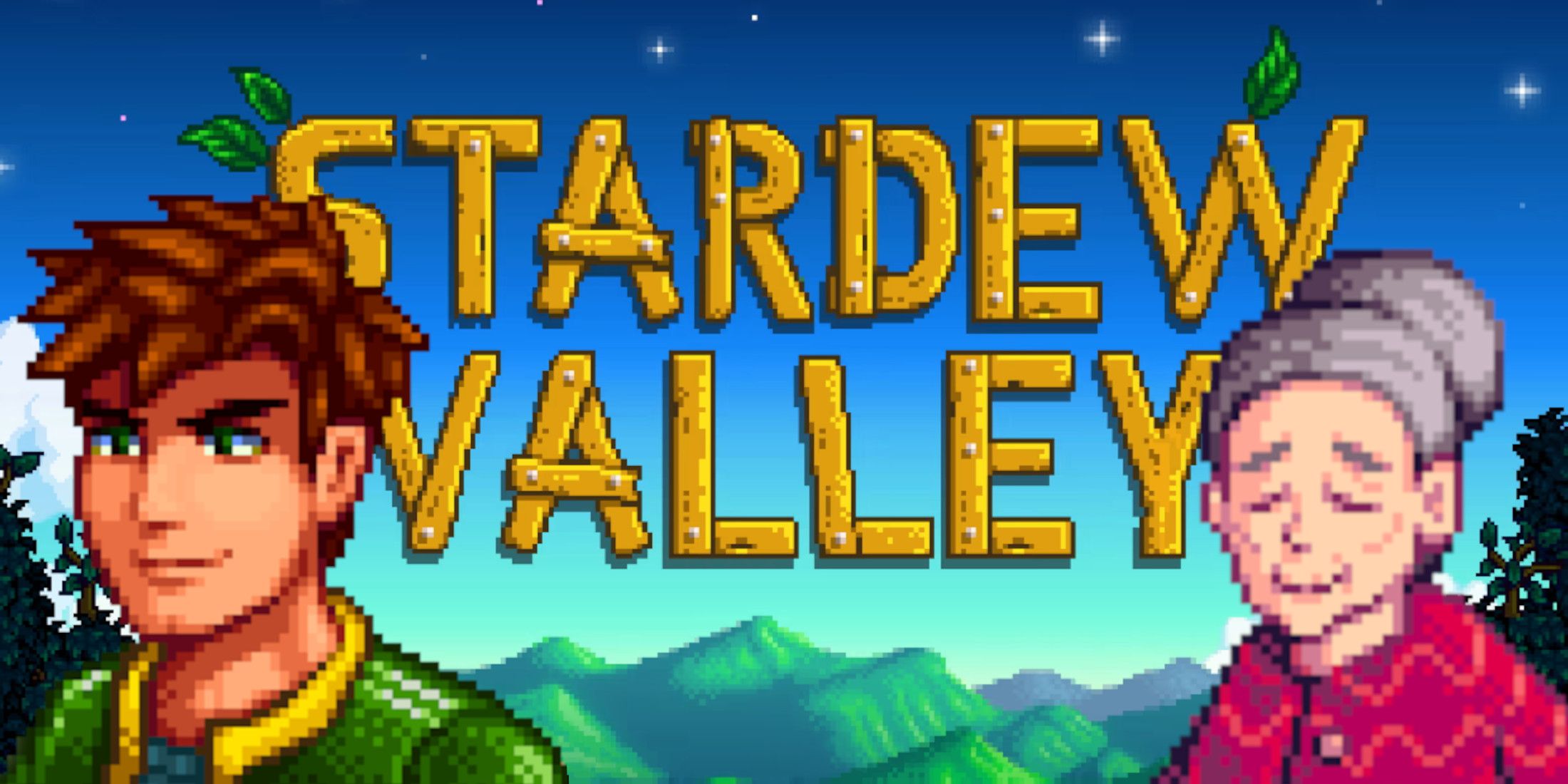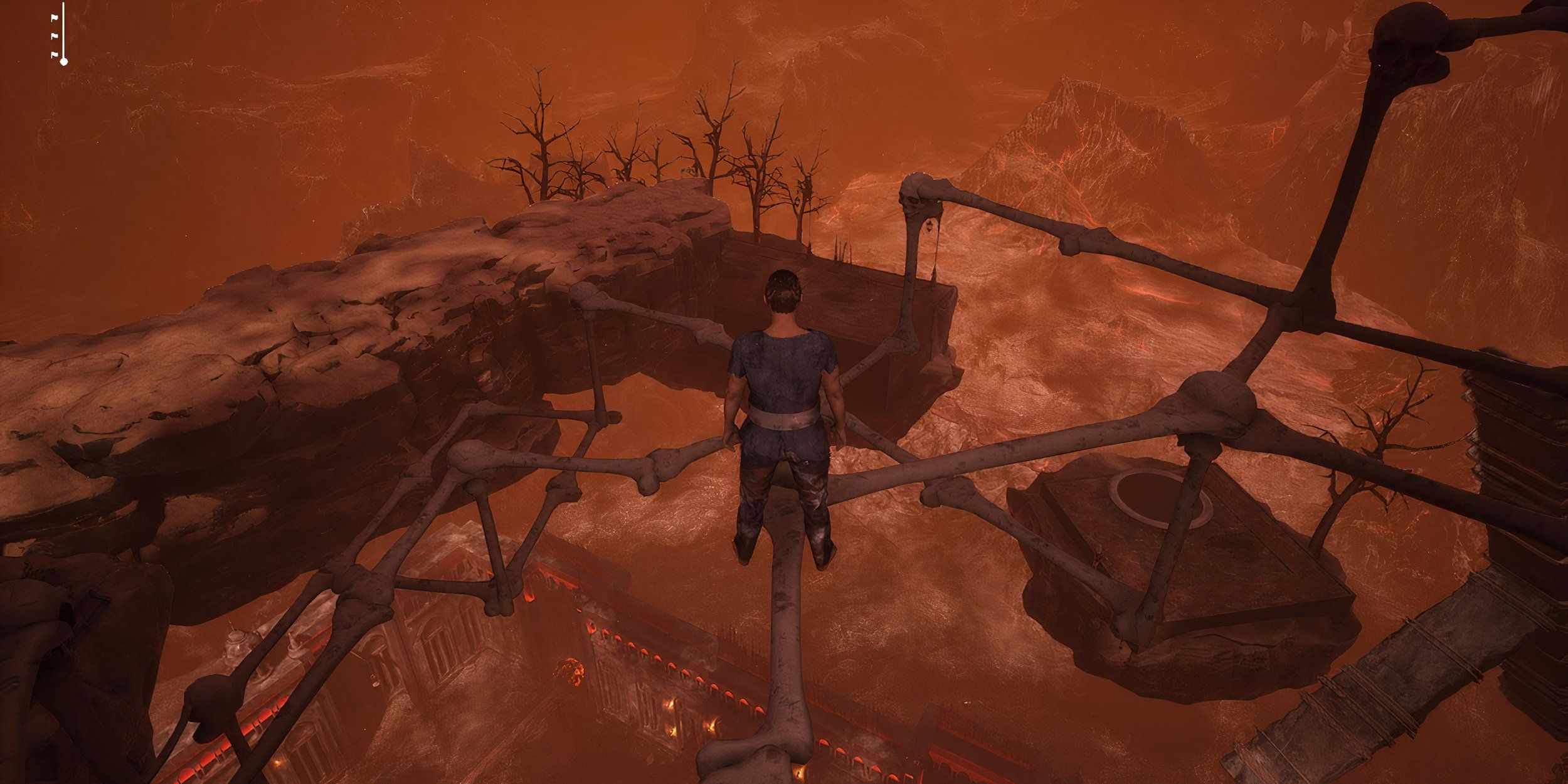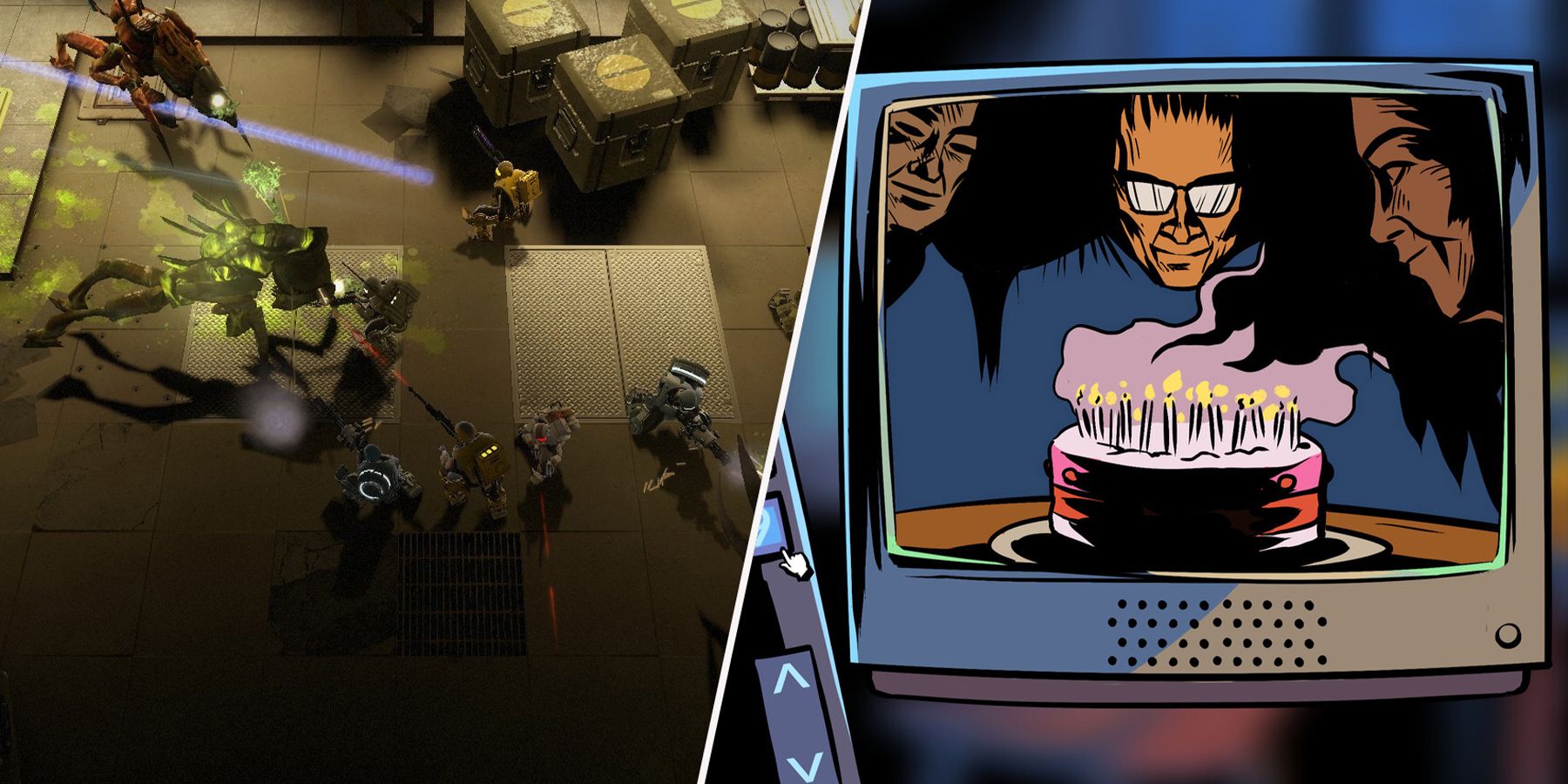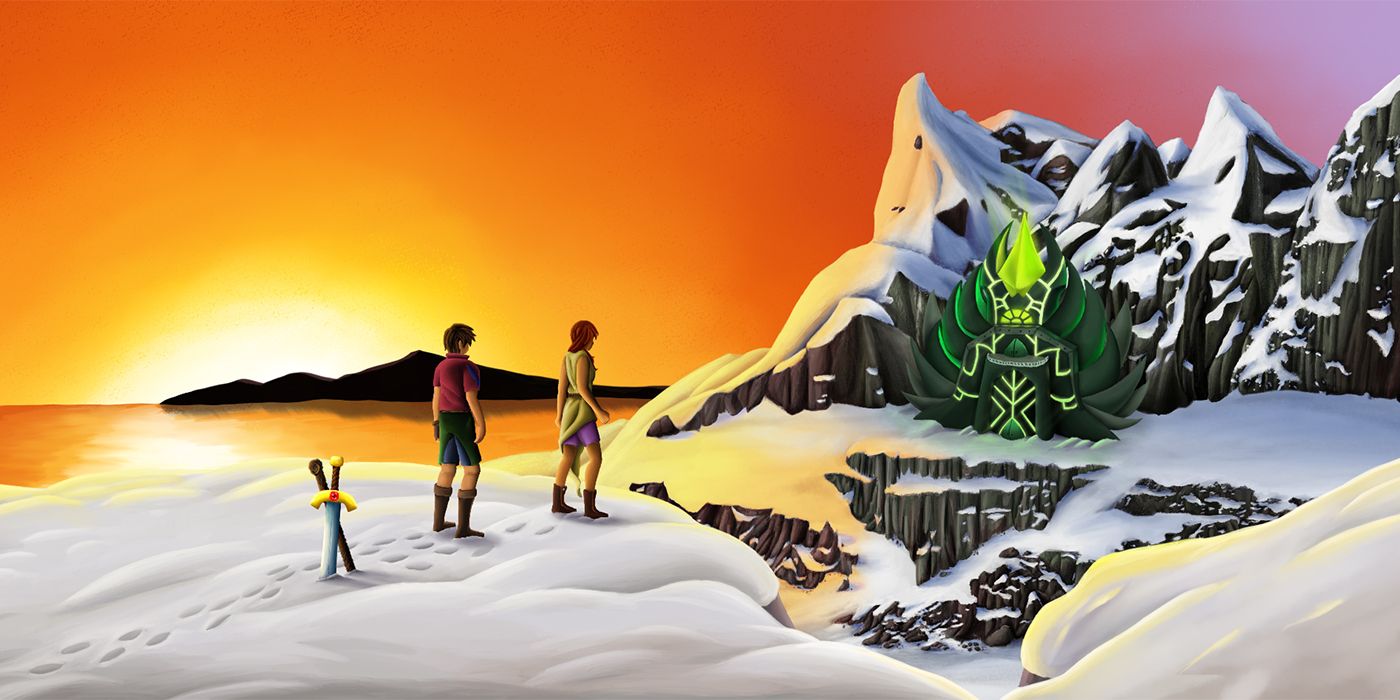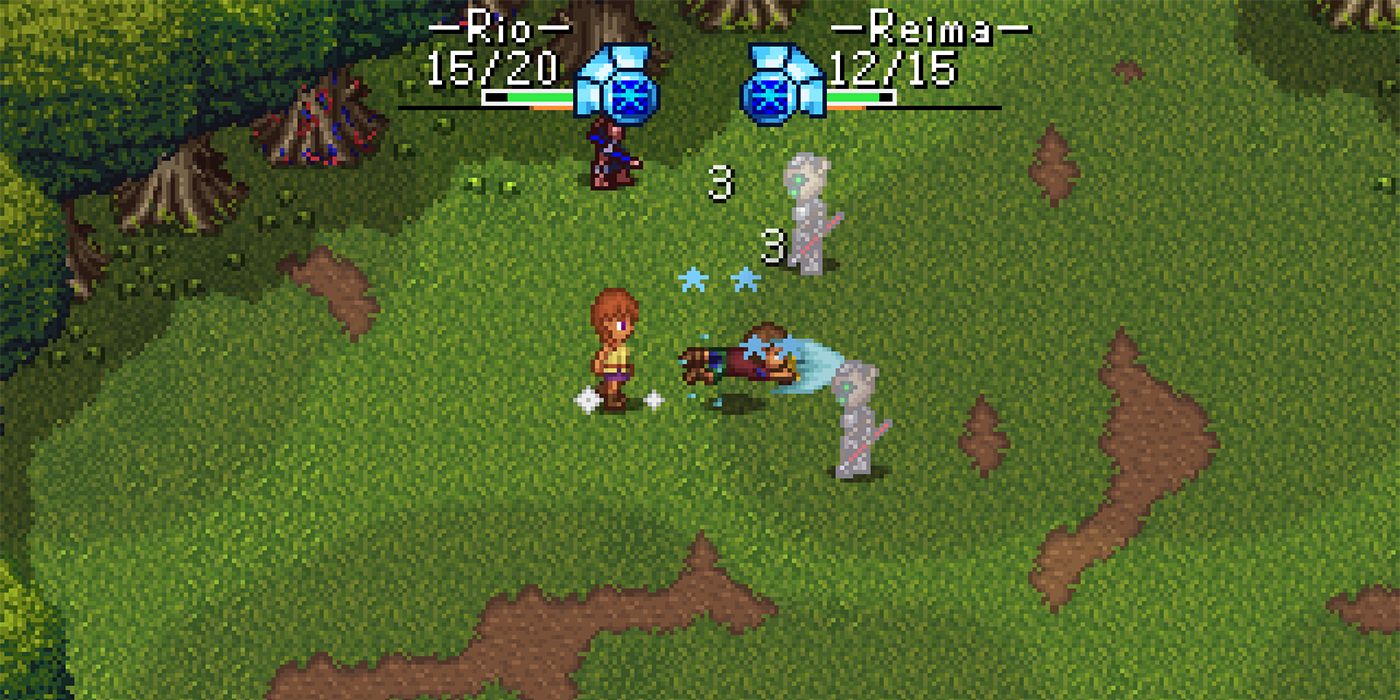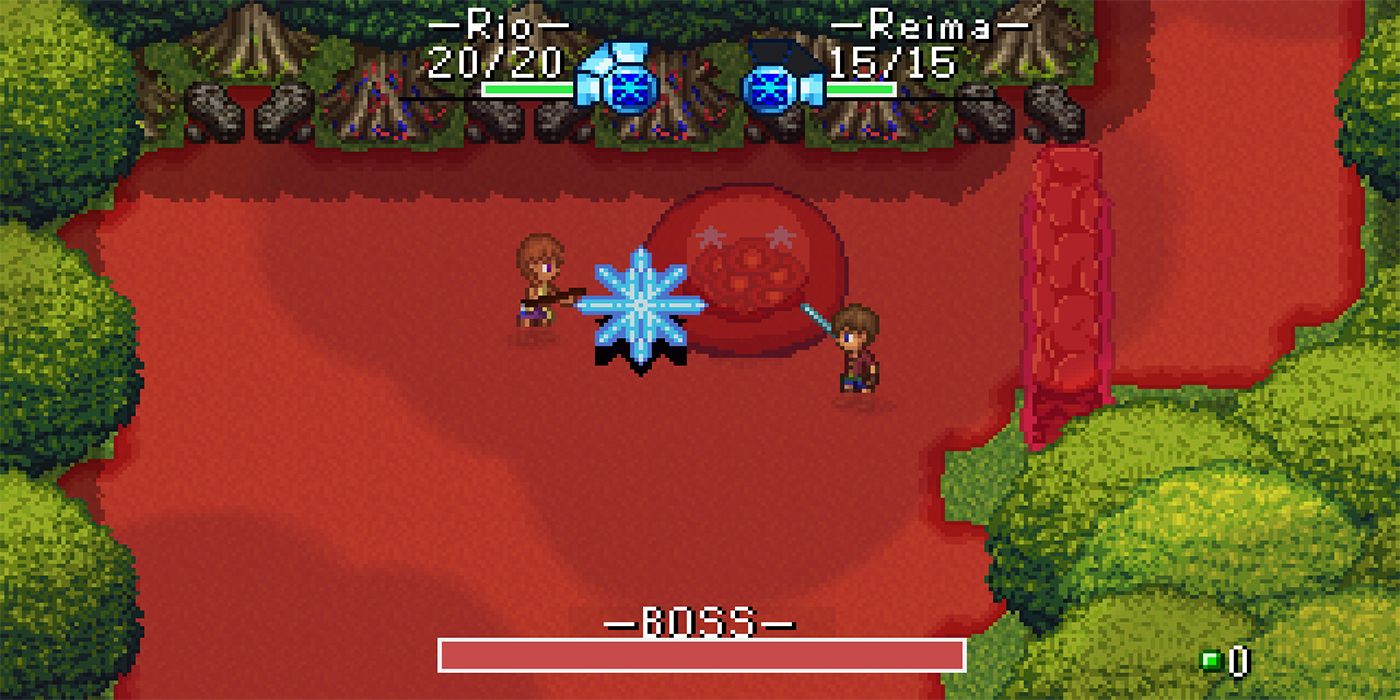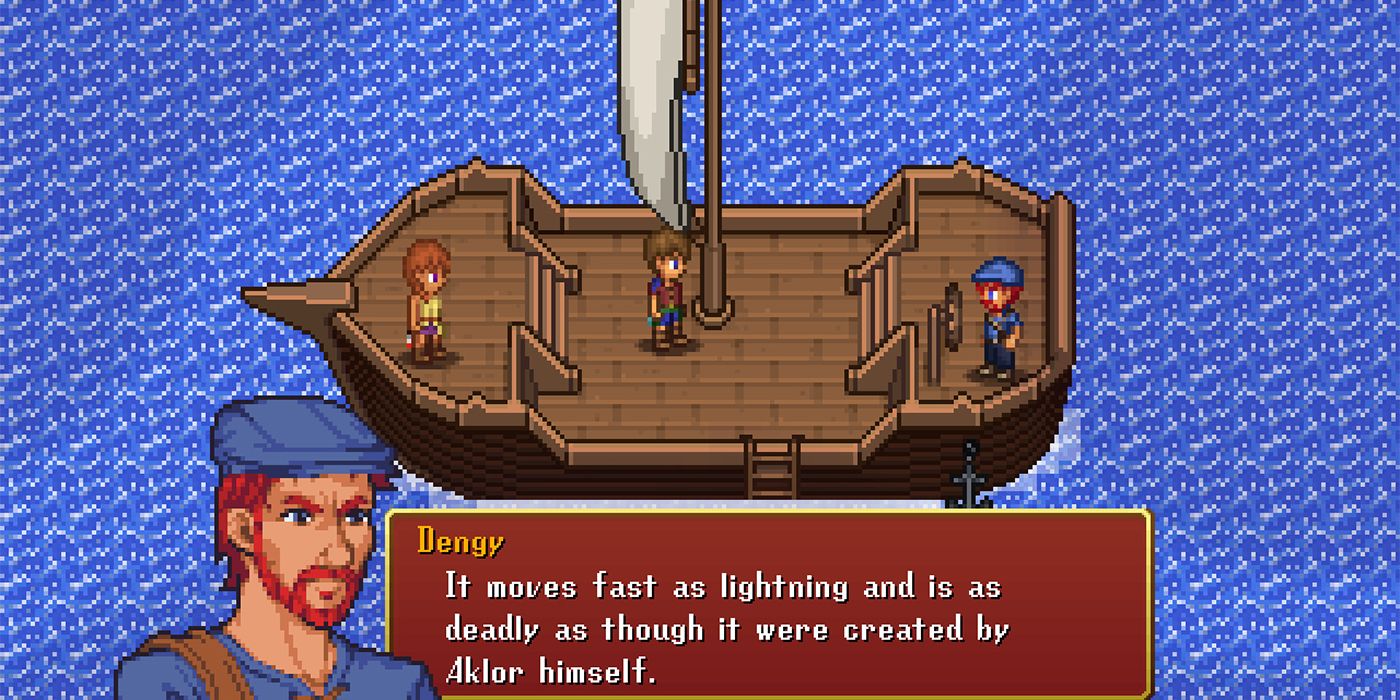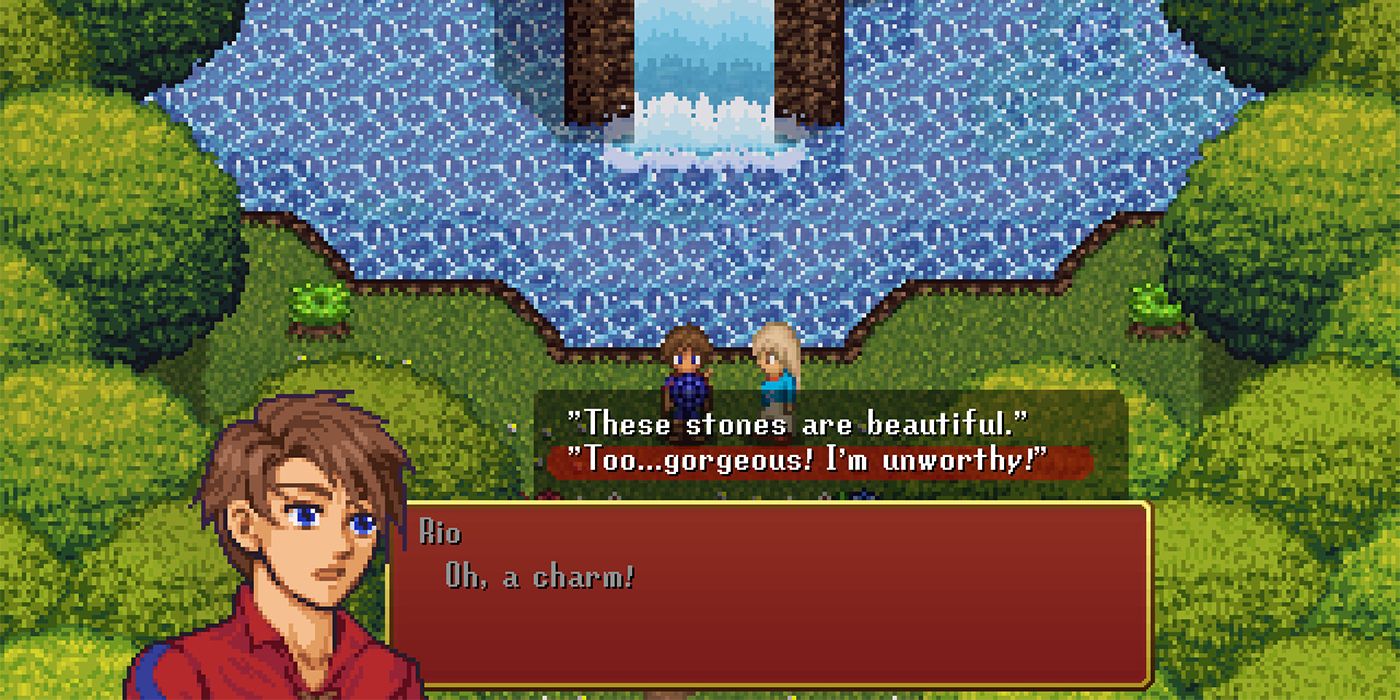The JRPG format has been used to tell intriguing stories since near the dawn of video games, inspiring classic titles like the Final Fantasy series and 2D Zelda titles. Now, Positive Concept Games is looking to evolve on this classic formula with its own story, Shrine's Legacy. In a recent interview with Game ZXC, Positive Concept Games' Creative Director Alan Gabbard and Technical Director Joseph Duke were able to share some new information regarding the story, characters, and mechanics in Shrine's Legacy.
Ahead of their Kickstarter release later this year, Gabbard and Duke made it clear they're focused on delivering a unique action RPG that offers co-op and accessibility not seen before. Shrine's Legacy takes a lot of inspiration from classic series like Final Fantasy, Soul Blazer, The Legend of Zelda, and more. The devs spoke of their love for the JRPG format and how they hope to create an engaging experience that pays proper tribute to their favorite games while still being able to be an entertaining experience that can stand on its own feet.
Q: What is the story behind Positive Concept Games as a company?
Alan Gabbard: So back in high school, many years ago, Positive Concept started as a band and that didn’t pan out. I always liked the name. Also in high school, we met each other and Joe said to me “Hey I want you to write the story for a game,” and I said “Okay.” We both had a love for Super Nintendo games, so that’s why he asked me to write the story. We both had a love for Final Fantasy and Chrono Trigger, stuff like that. When he asked me to write a story, I went with it like a childhood story. I would tell my brother stories before bed when we were really really young, and I didn’t want to use a concept that I felt was too strong for our first game.
Joseph Duke: Or too complicated.
Gabbard: Unfortunately, it’s still too ambitious of a game, but we’re running with it now. But that’s how it all began, he asked me to write a story for a game, and ever since then we’ve been cycling through life, college, and finally just hunkering down and saying “We need to get into this.” So our company officially started last year.
Q: What previous games or media serves as inspiration for Shrine's Legacy?
Gabbard: One of the first things I ever wanted to be a game designer. This was after I played Final Fantasy 9, it was one of the first things I ever wanted to do. It’s very RPG-centric, like Japanese RPGs. Final Fantasy 9 was my first Japanese RPG, Ocarina of Time was my first fantasy adventure game. I would say the biggest influence for what it is today would be games like Link to the Past, the Mana series, especially for the co-op aspect, and the storytelling of Final Fantasy. Really important, is the Soul Blazer trilogy: Illusion of Gaia, Terranigma, Soul Blazer. No one remembers those games, and it sucks.
Duke: Except for Illusion of Gaia, and even it’s flown a little under the radar.
Gabbard: Well we have this problem, where it’s really obvious that the Soul Blazer trilogy influenced our game, but it’s really niche.
Q: Would you call Shrine's Legacy a coming-of-age story? How so?
Gabbard: I would say that’s part of it. It definitely follows the hero’s journey archetype. To some extent, yeah, because he has to accept some responsibility for what it means to be the only one who can defeat the main villain, who’s also of legendary descent. There’s a lot more backstory. If you asked me what the story was really about, I’d say loss and how people cope with it. It’s more along with that kind of story.
Duke: I think that kind of stuff will be more evident as the game moves forward. Whereas in the beginning, it’s more simple to introduce everything that’s going on. There’s a little bit of loss in there, I won’t spoil it. The town is getting attacked, which you get to see (in the demo). The reason that we know the theme is loss is that the script is fully written. The story is done, it’s just a matter of getting it into game form.
Q: How do you change up the gameplay between dungeons?
Duke: In every major dungeon you’re going to get a new gemstone-like you do in the first dungeon. Each gemstone gives you a new spell and each spell does something new on the field as far as solving puzzles. Every time you get a new spell the next dungeon will test your ability to solve puzzles with that new spell. Along with each new dungeon having a new environment with different enemies.
The second dungeon has two different layers, outdoor/indoor parts, so there are different ways we have in mind to keep things interesting even beyond the fact that you can solve new puzzles. We plan to keep doing the idea where the enemies prepare you for the boss in a way. Which is a very Zelda-esque idea.
Q: How can the jewel system change up gameplay?
Gabbard: Jewels, they can do whatever kind of abilities we want to give players. I know one of them for example like you have a dash attack, well one of them lets you dash attack diagonally. This means that when you’re dash attacking you can move left or right instead of just straight. So that’s one way. Some Jewels may increase stats, some of them may change the actual control scheme, some of them let you gain MP faster, and one saves you from dying from a critical hit.
Duke: But also, we have plenty of Jewel effects for the future that aren’t in the demo. We can’t really spoil much on that front.
Gabbard: They’re a lot like Hollow Knight’s Charms.
Duke: Or badges in Paper Mario. In terms of how they influence gameplay, that’s where we’re taking our influence from and how we planned for them to work. We want jewels to be pretty strong, so in that way, you can customize your gameplay. It’s like if you want to be really strong in melee because you can’t choose your stats when you level up, we can make a jewel that makes up for that.
Q: In what ways does multiplayer differ from playing solo?
Gabbard: First of all, people need to understand that co-op in an action RPG is so uncommon that it’s a crime. No, but honestly I think co-op makes games more fun, in general. You don’t see co-op in games at all. You see it in Secret of Mana, but…
Duke: It’s just really uncommon.
Gabbard: Yeah. Final Fantasy 6 has co-op in combat and so does Final Fantasy 9 if you know how to set up your second controller. But as far as how it affects gameplay, I think it makes it easier because your AI ally can’t use magic. My thinking was you don’t want the AI using your magic whenever you might need it. I do think it makes it easier, but it also makes it more fun because you get to play with a friend and it feels like you’re on an adventure with someone.
Q: Why is Rio hesitant to take up his family's mantle? How will he grow?
Gabbard: He’s always had aspirations of being a hero someday. He learned a lot from his father, he learned how to use a sword from his father originally. So he’s always had those aspirations and then he’s a little reluctant initially because he doesn’t fully comprehend or realize what being a hero is, taking up the mantle and fulfilling your ancestor’s destiny and what that entails. I don’t think he fully comprehends that.
Also, I think, he initially refuses the call to adventure, which is Reima saying “Hey you have to come with me,” because she stole his sword. Why would he help? Instead of an old man wizard, which is typical, it’s Reima giving him the call to adventure and he’s like “Yeah, I’m not doing that. Also, why should I believe you?” I just wanna make the characters realistic towards each other.
Duke: Which is the whole reason he kind of declines at first, which kinda makes sense. It’d be too easy for Rio to be like “Okay, I’ll go on your journey! Let’s go!”
Q: Is there anything else you’d like to add?
Gabbard: Kickstarter.
Duke: We don’t have an official date for when it’s launching, but it will be this year though unless dire circumstances happen.
Gabbard: Probably in a couple of months, and probably before the holidays, I’ll just say that. Because people don’t want to spend money during the holidays.
Duke: We do have a pre-launch page, and that’s the best place to direct people.
Gabbard: We really really don’t want a publisher. A lot of people seem to be “I wish I could find a publisher,” but not me. That’s because one of the most common things when it comes to publisher-developer relationships, the publisher owns the rights to your IP, the thing you created. They own the selling rights, all future selling rights, remasters, whatever.
Duke: It’s common where, if you have your game published by a publisher, well let’s say you make a remaster later, then you have to use that same publisher to make your remaster. Even if you didn’t necessarily have a good experience with them, or maybe you have a better option available. I don’t think every publisher has that, but it’s common. We’ll do a publisher as a last resort, but we’re gonna try our darndest before that.
[END]
Shrine's Legacy is currently in development.

